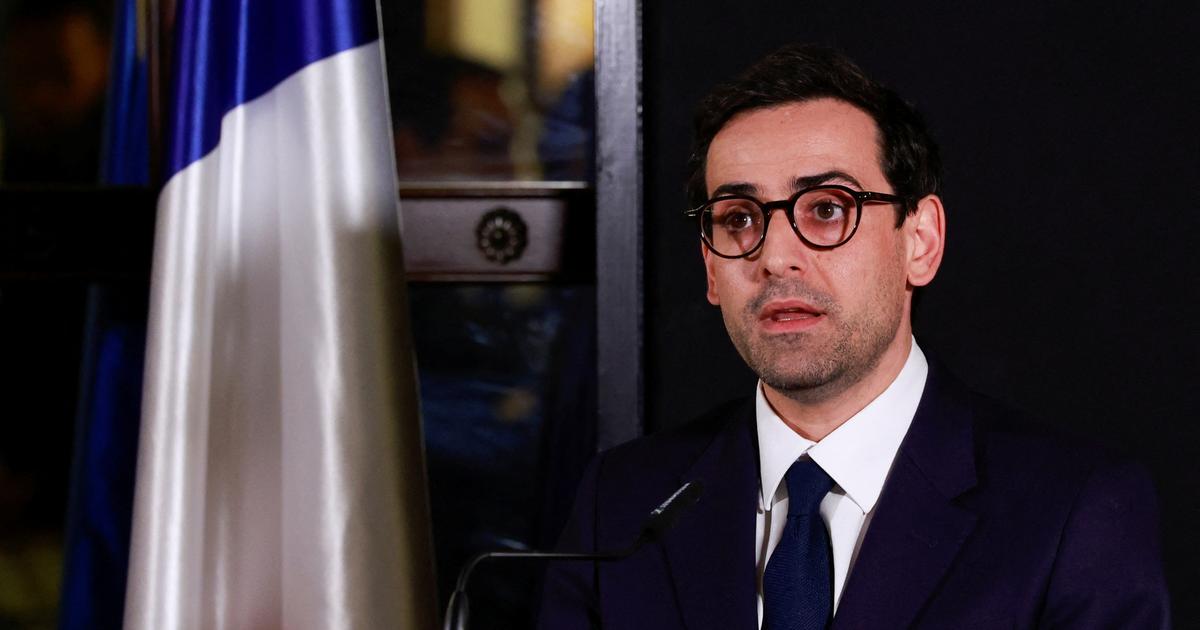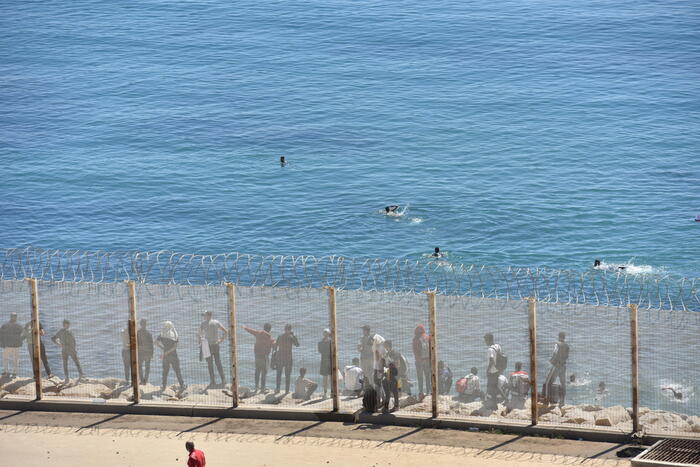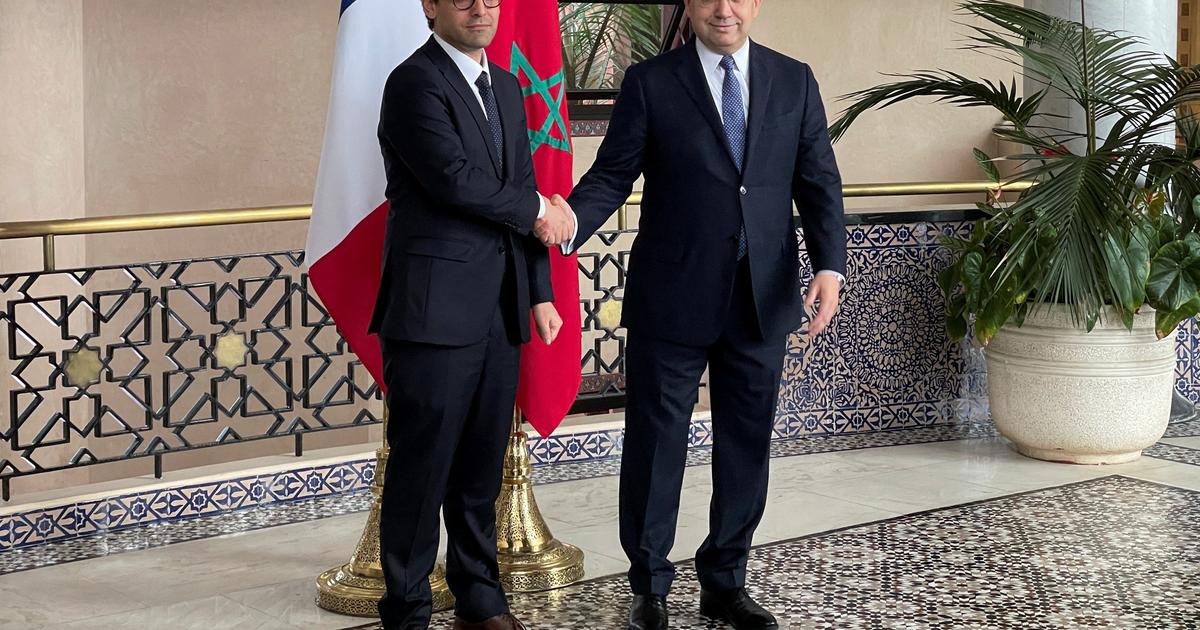Juan Carlos I called Hasan II "elder brother".
When the Moroccan monarch died in 1999, the then King of Spain told his son, Mohamed VI: "Now the older brother is me."
Former president José María Aznar tells the anecdote in
The Commitment to Power.
Memories II
(Planeta, 2013), but adds that, in reality, the real older brother was not Juan Carlos I but Jacques Chirac.
The French president had known Mohamed since he was a child and had an influence over him that no other leader could have dreamed of.
The relationship between Morocco, France and Spain has always had something of a family triangle, a matter of brothers and cousins in which, as in many families, affection and complexes intertwine, shared interests with resentment. In this triangle, Paris played a preponderant role, a power traditionally protective of the interests of Rabat, even if it was to the detriment of the Spanish.
This is not always the case anymore. Two weeks ago, Morocco temporarily stopped monitoring the border that separates that country from the autonomous city of Ceuta, a Spanish enclave in North Africa. Some 9,000 people crossed at once. The images of immigrants on the verge of drowning, including minors, went around the world. A few days earlier, Spain had welcomed Brahim Gali, leader of the Polisario Front, which defends the independence of Western Sahara occupied by Morocco.
It is possible that, at the time of Chirac, president of the Republic between 1995 and 2007, France had supported Morocco, as it did in 2002 when Moroccan gendarmes occupied the Spanish islet of Perejil. This time, however, it was different: Paris aligned itself with the European partners. "There has been an episode in which Spain has been put in difficulty in its relationship with Morocco," summed up on Monday, on BFMTV, the Secretary of State for Europe, Clément Beaune. And he added: "We support Spain."
"For once, France is not taking the side of Morocco", analyzes veteran journalist Jean-Pierre Tuquoi, author of several books on Morocco and the Maghreb. Tuquoi cites the editorial of the daily
Le Monde
, published a few days ago. "The international reputation of Morocco is very degraded," judges the editorial. The journalist adds: "It is
Le Monde
, but it reflects in a certain way the situation of French diplomacy with regard to Morocco." And he adds: "It is an incredible change, when you think about all the years in which France always defended Morocco against the EU, against Algeria, before the whole world."
French support for Spain is based on a fundamental fact: in Ceuta a European border is at stake. And a good part of the people who enter Europe through the Italian or Spanish coasts go to France. One year after a presidential election in which the extreme right has a chance of winning, for Emmanuel Macron it would be a nightmare for Morocco to open the doors of the EU. "I think that France could not do otherwise, it is the minimum," says Khadija Mohsen-Finan, a professor at the University Paris 1 and specialist in Morocco and the Maghreb. “This crisis may not change things, but it has lifted the veil. It has been seen that Morocco is capable of going very far: throwing its children into the sea, exploiting its youth, which is desperate ”.
In France, efforts have been made to distinguish the Moroccan inhibition in controlling the Ceuti border from the clash between Madrid and Rabat due to the hospitalization of Brahim Gali in Logroño, which triggered the crisis. In the first case, solidarity with Spain has been expressed; in the second, no. “The question of the reception of a Polisario personality concerns the Spanish-Moroccan relationship,” explains Christian Cambon, president of the Foreign and Defense Committee of the French Senate, where he directs the France-Morocco friendship group. "When it comes to migratory flows, there is a European responsibility that affects us all." Cambon, a member of the right-wing Los Republicanos party, adds: “We are no more in favor of Spain than of Morocco, nor less of Spain than of Morocco. They are two friends, two allies, countries that must undoubtedly work together ”.
Not everyone in government has been as resounding as Secretary of State Beaune. Interior Minister Gérald Darmanin said that Spain and Italy "poorly control" their borders. The head of diplomacy, Jean-Yves Le Drian, spoke of "a rather complicated relationship between Spain and Morocco", and wished that "it be reestablished in the best possible way", as if it were a bilateral dispute. Before the National Assembly, Le Drian described Morocco as an "essential partner of France" and "crucial" of the EU.
In the relationship between France and Morocco there is a historical component: the protectorate that, together with the Alawite dynasty, modernized the country, and a decolonization without the trauma of neighboring Algeria.
There is an emotional component: some two million Moroccans or Franco-Moroccans residing in France and the attachment of a part of the French elites to the North African country.
The 'realpolitik'
And there is a third component, that of
realpolitik
, interests. These are inexpensive. And geopolitical: Morocco is a pole of stability in a troubled area and an ally in the fight against terrorism. This was the cause of a clash in 2014, when François Hollande was presiding over France. A French judge summoned the powerful Moroccan security chief, Abdelatif Hamuchi, to respond to several allegations of torture. Morocco replied by suspending judicial cooperation for a year.
"When Morocco is not happy with its partner, it does not hesitate to hit where it hurts most," says a former French diplomat, who asks to remain anonymous. In the case of France, it was the fight against terrorism a few months after the wave of attacks in which, finally, Moroccan help to locate the terrorists was decisive. In the case of Spain, it is the border of the autonomous cities of Ceuta and Melilla: territorial integrity.
The chemistry between presidents like Chirac and the Alawite monarchs has been lost.
Today Macron is more concerned with Algeria, in his attempt to heal the wounds of the war for independence.
He was never a regular in Moroccan palaces: he does not consider himself a brother, or little or older.
"There is a distance," says historian Pierre Vermeren, author of
Le Marroc.
A royaume of paradoxes in 100 questions
(
Morocco. A kingdom of paradoxes in 100 questions
).
The question is whether it is a specific position due to the Ceuta episode or does it reflect a change in the background.
“I am skeptical.
France needs an ally in the Maghreb ”, argues Mohsen-Finan.
"It is necessary to raise who are our allies, and I am not sure that France is going to do it: it will say that it is a crisis that has happened".















